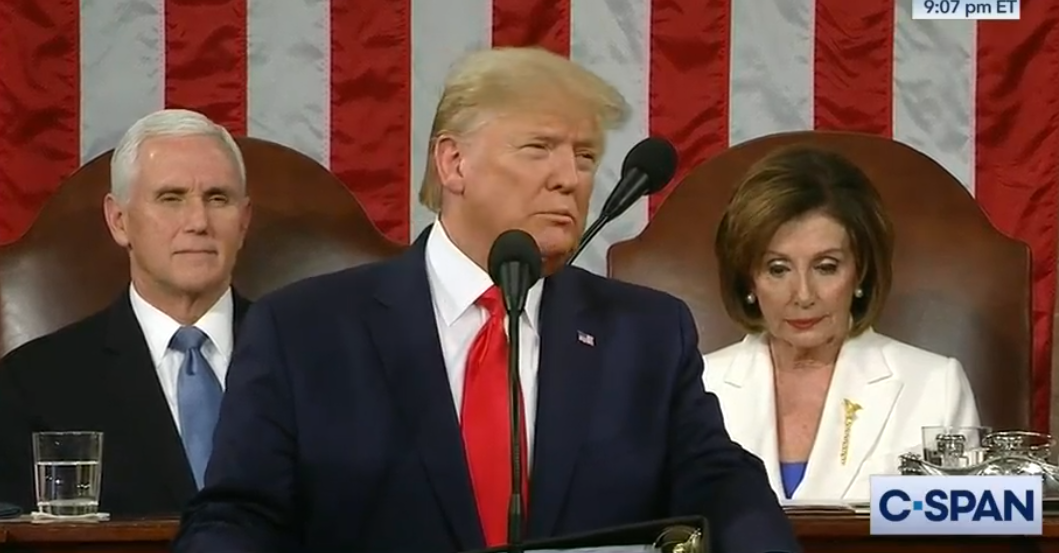Trump SOTU Touches on Tech Issues

The smarter way to stay on top of the multichannel video marketplace. Sign up below.
You are now subscribed
Your newsletter sign-up was successful
President Trump's almost 90-minute State of the Union speech Tuesday night (Feb. 4), gave only a few lines to tech and broadband issues, though he did talk more about the trade deals that tech companies have applauded.
At one point late in the speech, in a nod to the need for infrastructure investment, the President said: "I’m also committed to ensuring that every citizen can have access to high-speed Internet, including and especially in rural America."
Related: ITI Provides SOTU Speech Advice
At another, he asked Congress to "back my plan to offer vocational and technical education in every single high school in America."
He also took a victory lap over the signing of the new USMCA trade deal and a trade deal with China that he said would help defend intellectual property--while also loosening tariffs that tech companies said had hit them hard.
"[I]nternational trade deals, like USMCA and the U.S.-China agreement, will help advance the 21st century economy. We urge President Trump to continue to advance efforts to secure more trade agreements that support continued economic growth," said Jason Oxman, president of tech industry group the Information Technology Industry Council (ITI), after the speech.
ITI also called for policies that recognize the contributions of immigrants to the tech workforce, but the President's immigration themes were focused on building The Wall, criticizing sanctuary cities, and preventing "criminal" illegal/undocumented immigrants from getting healthcare.
The smarter way to stay on top of the multichannel video marketplace. Sign up below.
Connect Americans Now executive director Richard Cullen praised the Administration for efforts to close the divide, but used the rural broadband line to suggest more could be done to achieve that goal.
“While progress has been made, there is still much more the White House and policymakers in Washington can do to close the broadband gap for millions of Americans living in unserved and underserved rural areas,” said Cullen. “In particular, Connect Americans Now encourages policymakers in Washington to ensure funding mechanisms remain technology neutral, support additional solutions to improve the mapping of the digital divide and prioritize solutions to enhance the pace and scale of deployments in rural areas by maximizing the benefit of available spectrum.”
Contributing editor John Eggerton has been an editor and/or writer on media regulation, legislation and policy for over four decades, including covering the FCC, FTC, Congress, the major media trade associations, and the federal courts. In addition to Multichannel News and Broadcasting + Cable, his work has appeared in Radio World, TV Technology, TV Fax, This Week in Consumer Electronics, Variety and the Encyclopedia Britannica.

